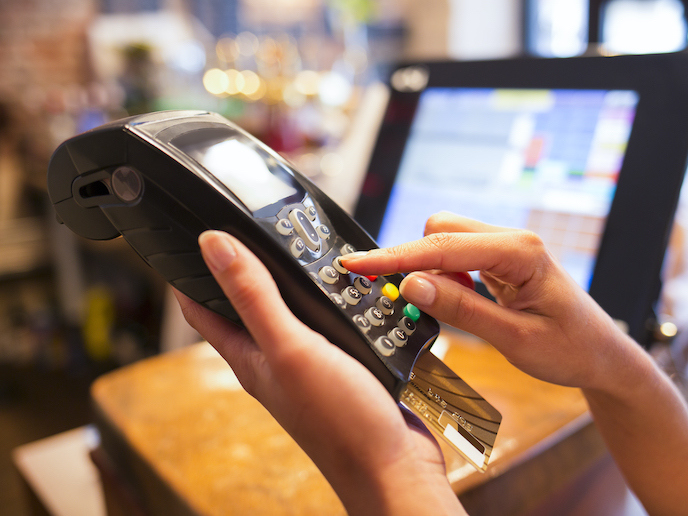Mobile payment app aims to disrupt financial transaction sector
When it comes to paying for goods and services, Europeans are essentially dependent on foreign payment providers. In fact, two American companies, Visa and Mastercard, are responsible for processing 80 % of all card transactions conducted by European retail businesses. With this dependency comes many risks. For example, high transaction fees and processing times that can take weeks hurt merchants economically. Furthermore, the technological dependency increases the risk of political instability within the EEA(opens in new window) (European Economic Area). But most worrying of all is that another jurisdiction controls almost all payment flows in Europe. Frustrated by this situation, several European expats at the Usability Engineering Center(opens in new window) in Slovakia decided to act. The result is EVERIFIN(opens in new window), a mobile payment application that uses direct bank transfers as a means of instant payments. “As expats living in different European countries, we noticed that managing money across multiple banks – even from different countries – is ineffective and cumbersome,” says Jana Maleckova, CEO and co-founder of the Usability Engineering Center, who also oversees business development and project management at EVERIFIN. “This triggered us to do our own research and, seeing a market need, develop EVERIFIN.” Now, thanks to the support of EU funding, EVERIFIN is one step closer to marketisation.
Removing the middleman
EVERIFIN aims to disrupt the financial transaction sector by allowing banks to transfer funds directly, thus removing the third-party transaction processor from the equation. “To illustrate, if you buy a coffee with a credit card, Visa will block the needed funds on your account until the merchant gets their money for the purchase – a process that can take weeks,” explains Juraj Malecka, co-founder of the Usability Engineering Center and architect, business analyst, and IT project manager at EVERIFIN. “If you buy a coffee within EVERIFIN, however, the merchant will get the money 10 seconds after you authorise the payment.” With the EU’s revised Payment Services Directive(opens in new window) (PSD2), which aims to create a more integrated, fair and efficient European payments market, having recently gone into effect, the Usability Engineering Center saw an opportunity. “With the EU funding, we conducted in-depth research on why transfers between EU countries take so long, the perception of the high transaction fees amongst retailers, and of course what we could do to change both,” says Maleckova. One of the key outcomes of this research involved anti-money laundering (AML) requirements, which can vary greatly between different European countries. For example, based on this research, the company was able to find and partner with a regulator well-versed in the appropriate AML measures for different types of service providers.
A pan-European solution
According to Malecka, the EU-funded research project identified a huge market demand for EVERIFIN and a clear go-to-market strategy: “Although our solution will require governments and banks to create a single European identification standard, EVERIFIN is well-positioned to leverage the new infrastructure when it comes.” “The feasibility study laid the foundation from which we will build EVERIFIN into the first pan-European solution for instant payments,” concludes Maleckova.







